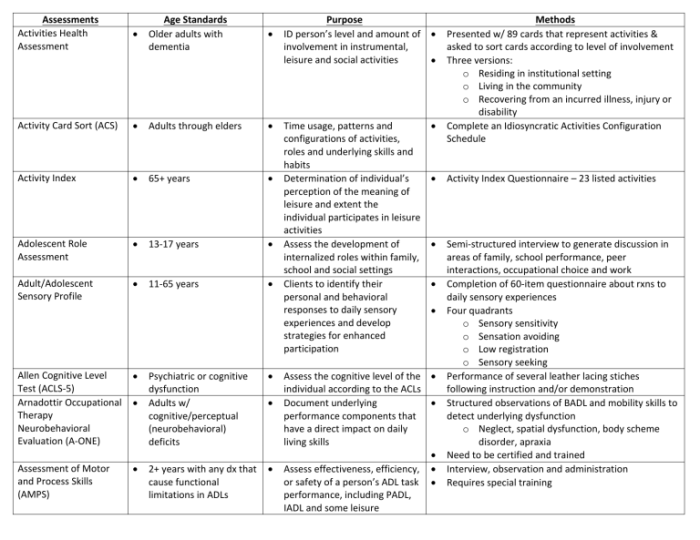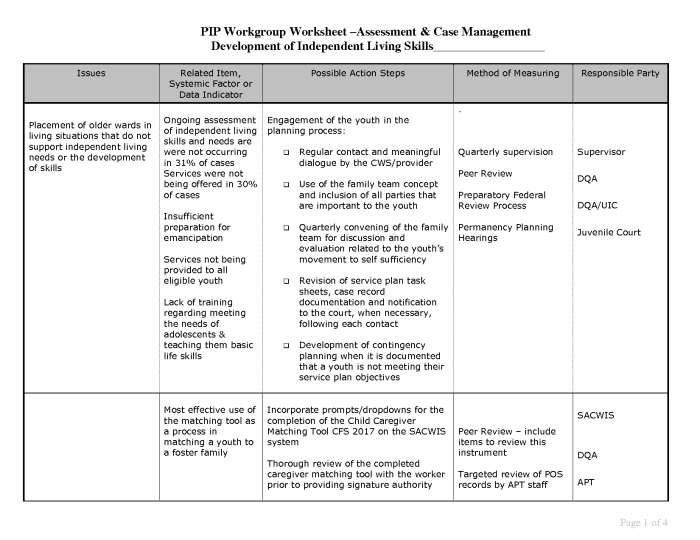The Milwaukee Evaluation of Daily Living Skills (MEDLS) stands as a prominent tool in assessing an individual’s ability to perform daily tasks essential for independent living. This comprehensive evaluation delves into the intricacies of everyday functioning, providing valuable insights for diagnosis, treatment planning, and monitoring progress.
The MEDLS encompasses a wide range of domains and subscales, each meticulously designed to capture specific aspects of daily living skills. From self-care and communication to problem-solving and community integration, the assessment provides a holistic view of an individual’s functional abilities.
Milwaukee Evaluation of Daily Living Skills (MEDLS) Overview

The MEDLS is a comprehensive assessment tool designed to evaluate an individual’s ability to perform daily living skills necessary for independent functioning. Developed by the Milwaukee County Mental Health Complex in the 1980s, the MEDLS has gained widespread use in various settings, including rehabilitation, geriatric, and psychiatric facilities.
The MEDLS assessment process involves a semi-structured interview and direct observation of the individual performing specific tasks. The interview gathers information about the individual’s history, current functioning, and environmental supports. The observation component assesses the individual’s performance in a variety of daily living activities, such as personal care, meal preparation, and money management.
The target population for the MEDLS includes individuals with cognitive impairments, developmental disabilities, mental health conditions, or physical limitations that may affect their ability to perform daily living skills. The assessment is not appropriate for individuals who are acutely ill, have severe cognitive deficits, or are unable to participate in the interview or observation components.
MEDLS Domains and Subscales

The MEDLS is organized into six domains, each of which assesses a specific aspect of daily living skills. The domains and their respective subscales are presented in the table below:
| Domain | Subscales |
|---|---|
| Self-Care |
|
| Home Management |
|
| Communication |
|
| Community Involvement |
|
| Social Skills |
|
| Health and Safety |
|
Each subscale includes a set of specific tasks or activities that are evaluated during the assessment. For example, the Personal Hygiene subscale assesses the individual’s ability to bathe, brush their teeth, and groom themselves.
Administration and Scoring: Milwaukee Evaluation Of Daily Living Skills

The MEDLS is typically administered by a trained professional, such as an occupational therapist, social worker, or psychologist. The assessment can be conducted in a variety of settings, including the individual’s home, a clinic, or a rehabilitation facility.
The scoring system for the MEDLS involves assigning a numerical value to each task or activity based on the individual’s performance. The raw scores are then summed to calculate domain scores and a total score. The total score ranges from 0 to 100, with higher scores indicating better daily living skills.
The interpretation of MEDLS scores should be done in conjunction with other clinical information and the individual’s history and goals. Scores can provide valuable information about the individual’s strengths and weaknesses in daily living skills, and can be used to guide treatment planning and monitoring progress.
Question & Answer Hub
What is the purpose of the MEDLS?
The MEDLS aims to assess an individual’s ability to perform daily living tasks independently, providing insights into their functional abilities and areas of need.
Who is the MEDLS typically used for?
The MEDLS is commonly used for individuals with physical, cognitive, or developmental disabilities who may have difficulty with daily living activities.
How is the MEDLS administered?
The MEDLS is typically administered by an occupational therapist or other qualified healthcare professional through observation and interviews with the individual and their caregivers.
